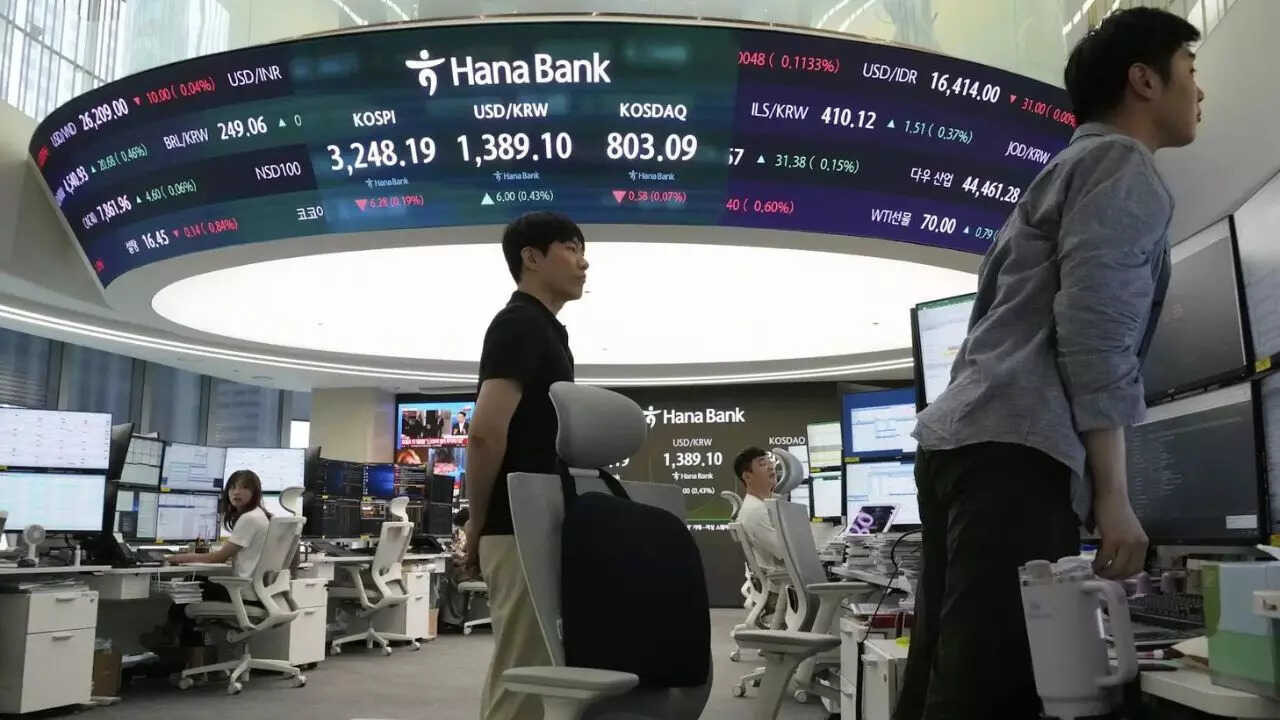Asian stocks saw modest gains, fueled by a tech and AI rebound, with Alibaba’s surge boosting emerging markets. Oil prices climbed due to concerns over supply disruptions from the Russia-Ukraine conflict, exacerbated by Ukrainian drone attacks on Russian refineries. Investors are closely watching upcoming US economic data, the Federal Reserve’s rate decision, and the OPEC+ meeting.
Asia’s Markets Find Their Footing: Tech Leads the Charge
After a period of nail-biting volatility, Asian markets are showing signs of resilience, bouncing back with a vigor fueled by a resurgence in the technology sector. Across the continent, from Tokyo to Taipei, investors are breathing a collective sigh of relief as key indices begin to claw back lost ground. But what’s driving this renewed optimism, and can it be sustained?
The answer, it seems, lies in a confluence of factors, with tech companies playing a starring role. We’ve witnessed a notable shift in sentiment towards tech stocks, which have long been considered barometers of global economic health. Investors are now seemingly betting on the long-term growth potential of the industry, spurred by advancements in artificial intelligence, cloud computing, and the ever-increasing demand for digital solutions. This renewed appetite for risk is injecting much-needed liquidity into the markets and providing a solid foundation for broader economic recovery.
Tech Stocks Power Asian Market Gains
The technology sector’s influence on the overall performance of Asian markets cannot be overstated. In recent trading sessions, the performance of giants like Samsung, TSMC, and Tencent have acted as catalysts, triggering positive ripple effects across other sectors. This is particularly evident in South Korea and Taiwan, where tech companies hold significant sway over the benchmark indices. The climb in tech stocks isn’t just about individual companies; it’s a reflection of confidence in the region’s ability to innovate and compete on a global scale.

Beyond the tech rally, other contributing factors are at play. For instance, the situation in Ukraine continues to exert considerable influence on global energy markets, and Asian economies are feeling the effects.
Oil Prices React to Geopolitical Tensions
The ongoing conflict in Ukraine has sent shockwaves through global energy markets, with recent Ukrainian drone strikes targeting Russian oil refineries adding another layer of complexity. This has led to a surge in oil prices, as traders grapple with the prospect of supply disruptions. For Asian economies, many of which are heavily reliant on imported oil, this development presents both challenges and opportunities.
On one hand, higher energy costs could exacerbate inflationary pressures and dampen consumer spending. On the other hand, it could incentivize investment in renewable energy sources and accelerate the transition to a more sustainable future. The long-term impact will largely depend on how effectively Asian governments manage the energy transition and mitigate the risks associated with volatile global energy prices.
Furthermore, currency movements are playing a role. A weaker yen, for example, can make Japanese exports more competitive, boosting corporate earnings and supporting the Nikkei 225. Similarly, fluctuations in the Chinese yuan can have a profound impact on regional trade flows and investment decisions.
A Cautious Outlook for Asian Economies
While the recent rebound in Asian markets is encouraging, it’s important to maintain a degree of caution. Global economic uncertainty remains elevated, with potential headwinds including persistent inflation, rising interest rates, and geopolitical tensions. The path to sustained recovery will likely be uneven, with periods of growth interspersed with setbacks.
Navigating this complex landscape will require astute policymaking, continued investment in innovation, and a willingness to adapt to changing global conditions. The resilience of Asian economies will be tested in the coming months, but the recent performance offers a glimmer of hope that the region is well-positioned to weather the storm. The focus on the strength of tech stocks will likely continue.
Ultimately, the future trajectory of Asian markets will depend on a delicate balance of factors, including global economic conditions, geopolitical stability, and the ability of regional economies to embrace innovation and adapt to evolving challenges. The initial rebound is positive, but consistent progress demands vigilance and strategic planning.







